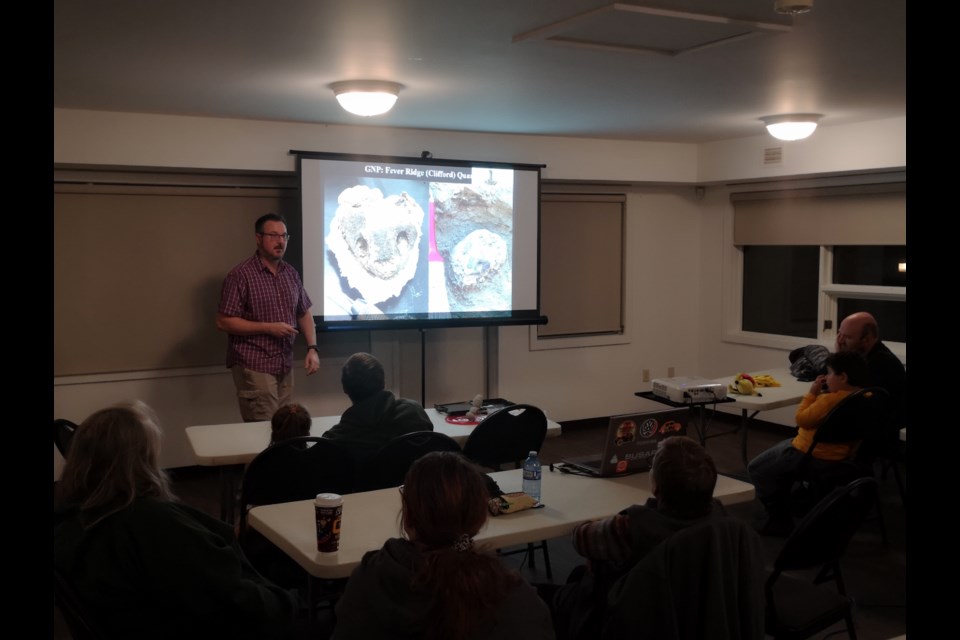Nature Moose Jaw, formerly known as the Moose Jaw Nature Society, is once again hosting events after a long delay brought on by the COVID-19 pandemic.
“We are back up and running again after being in hibernation for two and a half years,” said Rich Pickering, president of Nature Moose Jaw.
The organization’s latest event was held on Oct. 20 at the Kiwanis Lodge and focused on local paleontology. This was the second event planned since the pandemic and saw around 25 people in attendance.
“This one is about Dr. Ryan C. McKellar, and he’s talking about dinosaurs and amber research in the province over the last year,” Pickering explained. The scope of the presentation was limited to the geographic region of Southern Saskatchewan.
Dr. Ryan McKellar is the curator of paleontology at the Royal Saskatchewan Museum in Regina.
Among his areas of specialization are amber inclusions and composition. Dr. McKellar’s work allows researchers to better understand Paleo forests and their inhabitants over time, thereby inferring the ecological conditions from the time the resin was formed.
Amber deposits in Western Canada allow researchers to study insect evolution in the Late Cretaceous period, which was a time when insect groups found in modern ecosystems began their rise along with flowering plants. Research also helps understand their survival across the end-Cretaceous extinction event.
Nature Moose Jaw (the Moose Jaw Nature Society) has been around since the 1950s.
According to Pickering, the society is made up of “A group of people who are interested in nature… (and) in the plants, animals, and birds primarily in the Moose Jaw and surrounding area.”
Pickering said the organization wishes to focus on being project driven.
“We run the bird feeder down in Wakamow, so we’re trying to expand that a little bit,” he said, offering just one example of the organization’s ongoing projects.
The group is also working on a project to document the plants found within the Wakamow Valley and Tatawaw Park regions.
“We just finished updating the birds of the valley, so we now know over 200 species of birds have been found in the valley,” he said. Some people will say, “oh, that’s a sparrow.” “No, there’s like 15 or 20 different sparrow (species in the valley),” he clarified.
“We’ve come up with a list of speakers to see who we can get to come,” Pickering said regarding the organization’s plan for similar speaking engagements. “And part of it is just having programs that appeal to different people. Last time it was bird watching, this one is dinosaurs, and the next one is going to be urban wildlife.”
The urban wildlife presentation will be given by a student from Regina who has tracked and documented several animals using a trail camera, and at the presentation they will discuss their findings.
The upcoming urban wildlife presentation is scheduled to take place on Nov. 20, 2023 at the same location.
For the time being, events will be held at the Kiwanis Lodge on the upstairs level. The indoor facility allows the events to take place year-round, but venue options might change in the future.
The Kiwanis River Park Pavilion & Lodge is next to the skating oval and can be found by following River Drive into the Wakamow Valley.
Further events will be planned on a once-a-month basis and will take place on the third Friday of each month.
To contact Nature Moose Jaw, Rich Pickering can be reached at [email protected].




